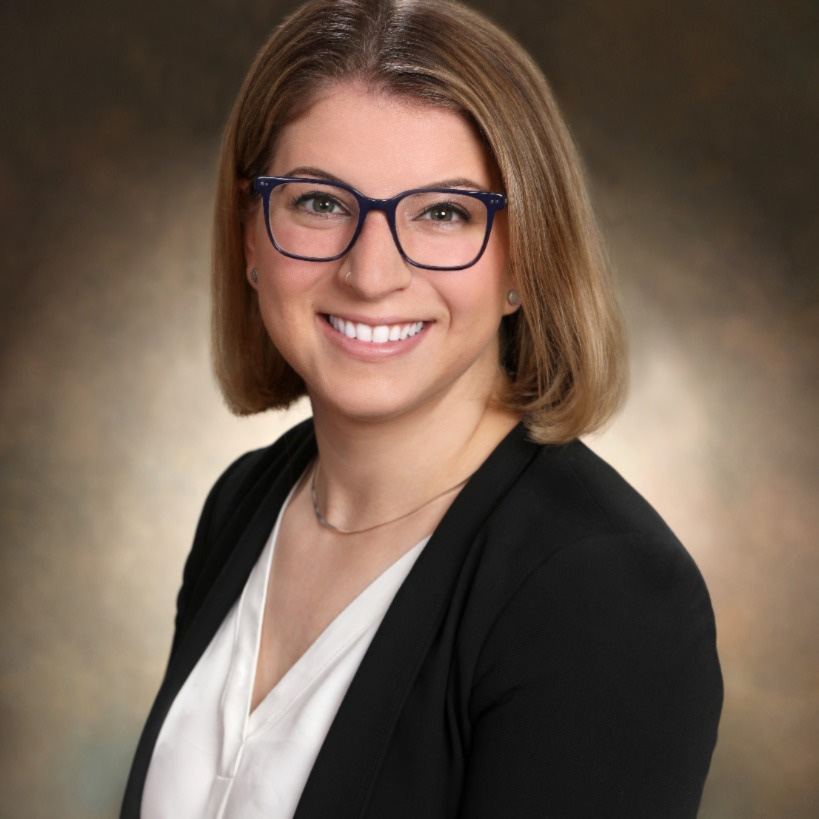Imagine with me for a moment. You’re at a blowout party at your Dreamhouse, surrounded by all your friends, in the middle of planned choreography to a bespoke song, when suddenly, mid-grapevine, an irksome question pops into your head. You know you shouldn’t ask it, but like an itch that needs to be scratched, you can’t help yourself.
“Do you guys ever think about dying?”
A record scratches. The music stops. Everyone gasps and stares in disbelief. It is this moment in the Barbie movie that leads the protagonist to confront a choice between staying in her comfortable, perfect life or knowing the truth of the universe. Though she hesitates to give up her idyllic existence, she lets her curiosity lead her down a path of discovery, learning and personal growth.
The derision that Barbie receives for her curiosity feels uncannily familiar. In our society, probing and significant questions are often sidelined or even dissuaded. Early on, many of us encounter moments where our curiosity is stifled — perhaps a query met with scorn or indifference by a parent, teacher, or friend. In educational settings, there’s a prevailing trend that values memorized responses over sincere questioning. Students quickly discern the benefits of conformity and the potential pitfalls of contesting established norms, whether it’s questions that disrupt a structured lesson or delay collaborative group work. Is it any wonder that many become hesitant to ask questions? The fear isn’t just of being wrong but of facing ridicule simply for asking a question in the first place.
According to Chic Thompson, founder of the educational program “What a Great Idea,” our natural curiosity dwindles as we age. A typical five-year-old asks 65 questions a day, predominantly beginning with “why.” By the age of eight, this drops to 41 questions. And by the time we are 44, we pose a mere six questions each day, primarily centered around “when, where, or how much?” Thompson thoughtfully remarks that we begin our educational journey as question marks and graduate as periods.
In literature and media, the value of relentless questioning and the pursuit of truth is a powerful, recurring theme. From the detective whose investigation gets too close to revealing that the conspiracy goes all the way to the top. The defiant protagonist in a dystopian society who refuses to take “that’s just the way it is” as an answer, to brave journalists exposing hidden truths.
These characters, with their spirit of inquiry, consistently face challenges, be it surveillance, threats, or outright danger. These stories not only celebrate the essence of curiosity but also caution us about the real-world adversities that often befall those who dare to seek the truth.
While the act of questioning can indeed pose risks — the vulnerability of revealing our ignorance, the danger of upsetting those who’d rather remain unchallenged, the label of being the ‘problem’, or the unsettling realization that some answers lead to even more challenging questions — the consequences of silence are far worse.
Imagine a world devoid of curiosity. Such a world would never see the marvels of innovation, exploration, or groundbreaking inventions.
The realms of science would be barren. Moments of human triumph, like the first steps on the moon, would remain unfathomable.
Life-altering innovations like penicillin, computers, automobiles, and telephones would be non-existent. The stories that captivate us, that make us see reflections of ourselves in fantastic worlds crafted in books, movies, or television, would be missing. We’d exist in a perpetual state of stagnation, succumbing to the dreariness of monotony.
The Torah offers a vivid illustration of such a world: The Garden of Eden. In this haven, the first humans had everything they needed for a comfortable existence. A world devoid of adversity, challenge, or discomfort might sound idyllic to many, but our text paints a portrait of excruciating boredom. This sentiment is echoed in the TV show, ‘The Good Place,’ where heaven is portrayed in a manner reminiscent of Eden. A character insightfully remarks, “On paper, this is paradise. All your desires and needs are met. But it’s infinite, and when perfection goes on forever, you become this glassy-eyed mush person.”
Adam received a singular command from God: “Do not eat from the Tree of Knowledge of Good and Bad.” Adam accepted this directive without a hint of curiosity. Yet, the narrative took a twist with the serpent’s arrival.
Tempting Eve, the serpent posed the question, “Did God really say you shall not eat of any tree in the garden?” This question ignited Eve’s curiosity. Her skepticism led her to roll up her sleeves and find out the truth for herself. She conducted the very first science experiment. After Eve took a bite, her eyes were opened, and humanity was changed forever.
Eve’s act of curiosity, often perceived as disobedience, resulted in humanity’s exile from the Garden of Eden. Yet, this very act laid the foundation for the human experience. It marked the beginning of our collective narrative—a tale that underscores the essence of being human. It speaks of our intrinsic desire to explore, to understand ourselves and the universe, even if it leads us into uncharted and challenging territories. More than definitive answers, it’s the insatiable quest for deeper questions that defines humanity.
There are many powerful symbols in the Jewish faith. The menorah, the Star of David, the kippa, the mezuzah, the shofar ….each symbol imbued with meaning, history, resonance, and connection. However, the most powerful symbol in the Jewish tradition, I would argue, is one that ironically does not exist in the biblical Hebrew grammatical structure – a question mark. We Jews like to question.
It’s an oft-repeated joke that when you ask a rabbi or a cantor a question, they will respond not with an answer, but with another question. This embodies sakranut, the value of curiosity, which is deeply embedded in our tradition. The Talmud, a compendium of rabbinic legal commentary, stands as a testament to this. Composed of innumerable debates about how to live according to the laws of the Torah, any given daf, or page, often leaves its reader with more questions than answers.
Sometimes, at the end of a long and exhausting debate, the Talmud will conclude with “Teiku!” meaning “let it stand” – essentially signaling that the debate will remain unresolved. Yet rather than disregarding these inconclusive discussions, we continue to learn and engage with those passages. The rabbis chose to preserve these debates in a sacred text, highlighting that even in the absence of resolution, there is inherent value in the questions and in the act of exploration, perhaps even more so than finding a definitive answer.
One of the most dedicated students of curiosity is Brian Grazer, a Hollywood producer acclaimed for films like Apollo 13 and TV shows like Arrested Development. He attributes a significant portion of his success to his insatiable curiosity. In his book, A Curious Mind: The Secret to a Bigger Life, he details his journey of cultivating this trait. Grazer routinely engages in “Curiosity Conversations,” one-on-one meetings with notable figures outside of entertainment, not to collect facts or impress at cocktail parties, but to grasp how others perceive the world. He dubs this “emotional curiosity” – a drive to decipher the interplay between one’s character, challenges, and achievements.
These conversations aren’t always comfortable. Yet, he consistently finds value in his inquisitiveness, stating, “Curiosity has swung wide many doors of opportunity for me. I’ve met amazing people, made great movies, made great friends, had some completely unexpected adventures, even fallen in love – because I’m not the least bit embarrassed to ask questions.”[1]
Curiosity is rooted in a powerful mix of bravery and humility: it takes courage to admit, “I don’t know,” and equal humility to plead, “Please teach me.” Rabbi Hillel, in Pirkei Avot, once remarked, “a timid person cannot learn.”[2] Delving deeper into this thought, Rav Ovadiah suggests that those who fear embarrassment might shy away from asking questions, and thus remain confined within their boundaries of knowledge.[3] It’s essential to understand that the growth of curiosity is not just about the individual’s courage. The wider community plays a crucial role in nurturing this trait by fostering a safe environment that embraces vulnerability.
The High Holiday season of renewal exemplifies this spirit of curiosity. Through Cheshbon Hanefesh, an introspective practice, we are encouraged to reflect on our actions and decisions from the past year. Engaging in such profound self-examination demands significant bravery. The goal, however, is not to drown in self-regret but to undertake the journey of teshuvah, of repentance. This reflective period compels us to ask, “How can the upcoming year be different?” It’s a season that encourages us to make curiosity an everyday practice.
Christy Geiger, Founder of Synergy Strategies, offers some insightful methods to weave curiosity into our routines:[4]
Begin by observing. Just as animals exhibit patience when exploring their environment, we too can benefit from deliberate observation. Instead of rushing, embrace stillness and study your surroundings. Engage all your senses: smell, touch, taste, and look closely. Shift from your usual spot or perspective to gain a holistic view. Genuine curiosity flourishes not from passive watching but from immersive wonder.
Next, ask questions. Before jumping in with your viewpoint, challenge yourself to ask two or three questions. Aim for depth, peel back layers and test assumptions. This process fosters a deeper understanding and encourages more meaningful interactions.
Further, expand your sources. Intentionally converse with those holding differing beliefs and listen to unfamiliar perspectives. This not only spawns fresh queries but broadens your worldview. As you do this, be vigilant of your own biases and assumptions. This self-awareness paves the way for a more expansive mindset, moving beyond a limited worldview.
Last, embrace change. Introduce novel experiences, no matter how minor. Whether it’s altering your commute to work, or seeking input from colleagues before providing a solution, these shifts stimulate consciousness and present avenues for discovery.
Observe. Ask Questions. Expand our sources. Embrace Change. This is the practice of curiosity that each one of us can cultivate.
As we stand at the threshold of a new year, consider: what sparks your curiosity? What profound questions do you want to ask in the coming year – about your relationships with family, friends, yourself, with God? About the natural world? About the norms and patterns of our society?
M’kor hachayim, source of life, and m’kor sakranut, fountain of curiosity, guide us in 5784 towards meaningful questions. As we navigate this journey, may we embrace the courage of curiosity, may we construct brave spaces that welcome deep questions. As we peer inward and focus outward, let’s dig beneath the surface, inspired by the inherent wonder that resides within us. This year let’s rekindle the relentless spirit of our inner child, ever inquisitive, ever questioning, transforming some of our most stubborn periods into big, audacious question marks.
[1] Brian Grazer and Charles Fishman, A Curious Mind: The Secret to a Bigger Life (New York: Simon & Schuster, 2015), 24.
[2] Pirkei Avot 2:5
[3] Rav Ovadiah on Pirkei Avot 2:5
[4] Christy Geiger, “Curiosity: Why it Matters, Why We Lose It and How to Get it Back,” Forbes.com, June 1, 2021. https://www.forbes.com/sites/forbescoachescouncil/2021/06/01/curiosity-why-it-matters-why-we-lose-it-and-how-to-get-it-back/?sh=419f14e52fa4.




